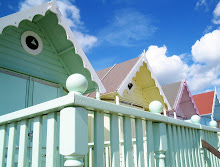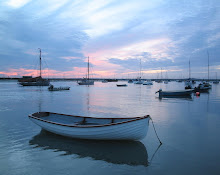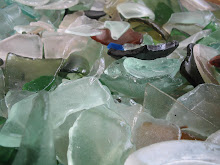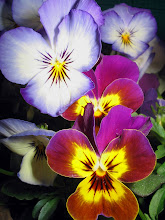 Colchester Castle, built by order of William the Conqueror, stands on the foundations of the Roman Temple of Claudius. This was the main target of Queen Boudica, when she led the rebel tribes of the Iceni and the Trinovantes in an attack on Colchester in AD 60. The town's Roman citizens barricaded themselves into the temple but after a two-day siege, they were all killed.
Colchester Castle, built by order of William the Conqueror, stands on the foundations of the Roman Temple of Claudius. This was the main target of Queen Boudica, when she led the rebel tribes of the Iceni and the Trinovantes in an attack on Colchester in AD 60. The town's Roman citizens barricaded themselves into the temple but after a two-day siege, they were all killed.
The keep of the castle was the largest ever built in Britain (to the same design as the White Tower of the Tower of London) and is an early example of recycling, incorporating as it does - and to splendid aesthetic effect - a huge number of Roman bricks.
 For much of its post-medieval life it served as a prison, but in the eighteenth century passed into the private ownership of Charles Gray, MP for Colchester. Gray turned the surrounding land into a garden, now the attractive Castle Park, a pleasant place to stroll (as I did on Sunday morning), which also provides a great venue for all kinds of open-air concerts, fairs and other events over the summer.
For much of its post-medieval life it served as a prison, but in the eighteenth century passed into the private ownership of Charles Gray, MP for Colchester. Gray turned the surrounding land into a garden, now the attractive Castle Park, a pleasant place to stroll (as I did on Sunday morning), which also provides a great venue for all kinds of open-air concerts, fairs and other events over the summer.
The pretty Victorian bandstand is still used by (appropriately enough) bands of one sort or another, too.
 The castle itself is now an excellent museum .
The castle itself is now an excellent museum .Enjoyed brunch at the Life gallery cafe, eating succulent, peppery Proctor's Cumberland sausages while gazing at the paintings of Mel King.





















4 comments:
Facsinating post, J, but you will have to stop mentioning good places to eat (and what you ate there), not to mention art galleries and museums. Those of us in the Far West who have been snowbound (not to mention lifebound) are beginning to get cabin fever. Going out to lunch and enjoying cultural jaunts seem like a dim, distant memory . . .
Lovely post about the castle and also its grounds. It really is park gardening at its best, in my humble view. Teresa
I've just discovered that one of my great grandfathers was a brickmaker, so have been reading up on it. It is a fascinating subject; I had no idea of the variety and complexity of such an everyday commodity. Thanks for the wonderful pictures of the castle and garden walls.
25th July 2009 my daughter had her wedding reception at the castle. It was an amazing day. We had the museum to ourselves after 5pm, brilliant fun and memories.
Post a Comment